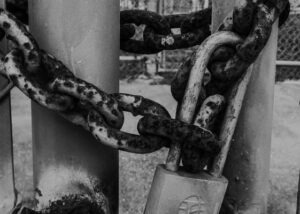Quran
Hadith
Islamic Text
بِسْمِ اللَّهِ الرَّحْمَنِ الرَّحِيمِ
In the Name of Allah Most Merciful Most Kind
Short Answer
Yes, the Salaf did speak out against Muslim leaders. However, there was less need for them to do so since they lived in a better time. Therefore, this duty of speaking out is more emphatic upon us because we have far worse leaders.
Hadith
عَنْ طَارِقِ بْنِ شِهَابٍ، أَنَّ رَجُلًا سَأَلَ رَسُولَ اللهِ صَلَّى اللهُ عَلَيْهِ وَسَلَّمَ، وَقَدْ وَضَعَ رِجْلَهُ فِي الْغَرْزِ: أَيُّ الْجِهَادِ أَفْضَلُ؟ قَالَ: كَلِمَةُ حَقٍّ عِنْدَ سُلْطَانٍ جَائِرٍ
Tariq bin Shihab narrated that a man asked the Messenger of Allah ﷺ, while his foot was in the stirrup, Which jihad is better? He ﷺ said: ‘A truthful word before an unjust ruler.’ (Musnad Ahmad 18830, Sahih).
This Hadith narration above is also in Tirmidhi (2174), Ibn Maja (4011 and 4012), Abu Dawood (4344) and many others. Further, this Hadith does not restrict speaking truth to leaders to private settings alone. Therefore, people who say that it must be done in private and not publicly contradict the Hadith. Additionally, such individuals also contradict the explanation provided by senior scholars:
فَإِن لم يُمكن الْوَعْظ سرا فليجعله عَلَانيَة لِئَلَّا يضيع الْحق لما روى طَارق بن شهَاب قَالَ قَالَ رَسُول الله – صَلَّى اللَّهُ عَلَيْهِ وَسَلَّم َ – ” أفضل الْجِهَاد كلمة حق عِنْد سُلْطَان جَائِر ” وَأخرجه التِّرْمِذِيّ من حَدِيث أبي سعيد بِإِسْنَاد حسن. (عمدة القاري شرح صحيح البخاري)
If it is not possible to exhort in private, then make it public so that the truth is not lost. Due to the narration of Tariq bin Shihab. He said: The Messenger of Allah ﷺ said, ‘The best jihad is a word of truth before an unjust ruler.’ (Imam) al-Tirmidhi narrated it from (Sayidina) Abu Sa’id with a Hasan chain of transmission. (Imam al-Ayni, Umdatu al-Qari Sharh Saih al-Bukhari).
Sayidah Asma rebuking al-Hajaj
أَمَا إِنَّ رَسُولَ اللهِ صَلَّى اللهُ عَلَيْهِ وَسَلَّمَ حَدَّثَنَا، أَنَّ فِي ثَقِيفٍ كَذَّابًا وَمُبِيرًا. فَأَمَّا الْكَذَّابُ فَرَأَيْنَاهُ، وَأَمَّا الْمُبِيرُ فَلَا إِخَالُكَ إِلَّا إِيَّاهُ، قَالَ: فَقَامَ عَنْهَا وَلَمْ يُرَاجِعْهَا
Sayidah Asma bin Abi Bakr said to al-Hajaj: As for the Messenger of Allah ﷺ, he said, ‘In Thaqif there is a liar and a slayer.’ As for the liar, we saw him. And as for the slayer, I do not think you are other than him. He left her and did not respond to her. (Sahih Muslim, 2545 – 229).
The narration above demonstrates a Sahabiyyah rebuking a leader. The fact that the Tabieen narrated this hadith shows that the they were not averse to speaking out against the leaders. By necessity, they would have had to repeat the rebuke of a leader numerous times to preserve the narration. Additionally, had it been prohibited to rebuke leaders publicly, they would not have been permitted to narrate this incident from person to person.
Scholars of the Salaf rebuking al-Hajaj
عَنْ أَبِي مَعْمَرٍ، أَنَّهُ قَامَ إِلَى الْحَجَّاجِ فَقَالَ: ” لَا تُسْرِفْ فِي الْقَتْلِ، إِنَّهُ كَانَ مَنْصُورًا “، فَقَالَ الْحَجَّاجُ: أَمْكَنَ اللهُ مِنْ دَمِكَ
Abu Muammar stood up to al-Hajjaj and said: “Do not go to extremes in killing, for he will be assisted.” Al-Hajjaj said: May Allah make your blood possible. (Bayhaqi Shuab al-Iman, 7200).
حَدَّثَنَا وَكِيعٌ، عَنْ سُفْيَانَ، عَنْ مَنْصُورٍ، عَنْ إِبْرَاهِيمَ: أَنَّهُ كَانَ إِذَا ذَكَرَ الْحَجَّاجَ قَالَ: أَلَا لَعْنَةُ اللَّهِ عَلَى الظَّالِمِينَ
Waki` informed us, from Sufyan, from Mansour, regarding Ibrahim, that when he mentioned al-Hajjaj, he used to say: May the curse of Allah be upon the wrongdoers. (Musanaf Ibn Abi Shaybah, 30357).
In the above narrations, it is evident that al-Hajaj was rebuked in his absence. As such, these narrations are significant since some brothers argue that Muslims are not permitted to criticise rulers in their absence. Not only does this view contradict the narration above, but it also contradicts the explanation provided by Imam Ibn Rajab:
وفي رِوَايَة للأمام أحمد من حَدِيْث عُثْمَان بْن سعد، عَن أَنَس، قَالَ: أو ليس قَدْ علمت مَا قَدْ صنع الحجاج فِي الصلاة؟! وكان هَذَا الإنكار عَلَى الأمراء، كما رَوَى أبو إِسْحَاق، عَن معاوية بْن قرة، قَالَ: دخلت أنا ونفر معي عَلَى أنس بْن مَالِك، فَقَالَ: مَا أمراؤكم هؤلاء عَلَى شيء مِمَّا كَانَ عَلِيهِ مُحَمَّد وأصحابه، إلا أنهم يزعمون أنهم يصلون ويصومون رمضان. (فتح الباري شرح صحيح البخاري)
In a narration by Imam Ahmad from the hadith of Uthman bin Saad, on the authority of (Sayidina) Anas, he said: Do you not know what al-Hajaj did during prayer?
This was a rebuke of the leaders. Similar to what was narrated by Abu Ishaq from Muawiyah bin Qurrah, who said: I and a group of people entered upon Anas bin Malik. He said, these leaders of yours are not in compliance with anything of what Muhammad ﷺ and his companions were upon, except that they claim that they pray and fast during Ramadan. (Imam Ibn Rajab al-Hanbali, Fath al-Bari).
In the Nass above, Imam Ibn Rajab is conveying the criticism of leaders in their absence. Further, He seems to have no concern with the fact that this criticism is done in the absence of the leader. The view that it is not permitted to highlight the shortcomings of rulers in their absence seems to be a recent view, not substantiated by classical scholars.
Sayidina Ibn Umar rebuking al-Hajaj
أَخبَرنا مُسلِمُ بن إِبراهيمَ, قالَ: حَدَّثَنا الأَسوَدُ بن شَيبانَ, قالَ: حَدَّثَنا خالِدُ بن سُمَيرٍ, قالَ: خَطَبَ الحَجّاجُ الفاسِقُ عَلَى المِنبَرِ، فَقالَ: إِنَّ ابنَ الزُّبَير حَرَّفَ كِتابَ الله، فَقالَ لَهُ ابن عُمَر: كَذَبتَ، كَذَبتَ، كَذَبتَ، ما يَستَطيعُ ذَلِكَ، ولاَ أَنتَ مَعَهُ, فَقالَ لَهُ الحَجّاجُ: اسكُت, فَإِنَّكَ شَيخٌ قَد خَرِفتَ وذَهَبَ عَقلُكَ، يوشِكُ شَيخٌ أَن يُؤخَذَ فَتُضرَبَ عُنُقُهُ
Muslim bin Ibrahim informed us saying, al-Aswad bin Shayban informed us saying, Kahlid bin Sumayr said: al-Hajaj the sinner delivered a sermon upon the pulpit saying, Indeed Ibn Zubayr distorted the Book of Allah. So (Sayidina) Ibn Umar said to him You have lied, you have lied, you have lied. He could not do that. Nor can you. Al-Hajjaj said to him: Be quiet, for you are an old man. You have become senile and have lost your mind. An old man is about to be taken and have his neck struck. (Tabaqaat Ibn Sa’d, 5316).
This incident was also narrated by Imam al-Dhahabi in Siyar. Sayidina Abdullah bin Umar (May Allah Most High be pleased with them both) is publicly rebuking al-Hajaj. However, this is the case even despite the fact that (Sayidina) Ibn Umar was known to be very cautious in opposing authority.
Concluding Remarks
As seen above, it is well established that Sahabah and Tabieen spoke out against rulers. Consequently, it is unacceptable for people to claim otherwise. Unfortunately, people get away with misleading others due to the sectarian approach many Muslims have towards learning the Deen.
Many restrict themselves to studying with a small group (The views of Sunni scholars on speaking against the rulers) of people with similar religious views. If they were to look outside that group, then they may find that some of what they have been taught is incorrect.
And Allah Most High Knows Best.
–Answered by Shaykh Noorud-deen Rashid (08.11.23)






